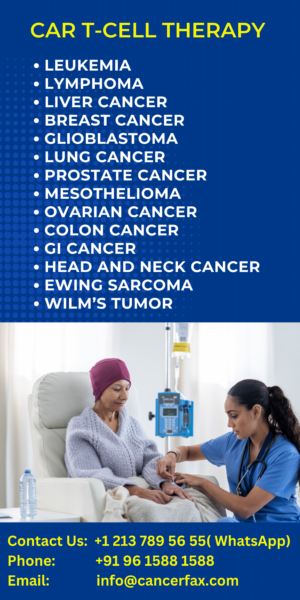Bendamustine Hydrochloride (Bendeka)
Introduction
Within the field of oncology, the endeavor to develop efficacious cancer treatments has resulted in notable progressions in pharmacotherapy. Bendamustine Hydrochloride is a highly effective medicine for treating different types of cancer. This article provides an in-depth analysis of Bendamustine Hydrochloride, examining its mechanism of action, therapeutic applications, clinical effectiveness, safety profile, and potential future advancements in the field of cancer treatment.
Understanding Bendamustine Hydrochloride:
Bendamustine Hydrochloride, commonly referred to as Treanda or Bendeka, is classified as an alkylating agent within the pharmaceutical category of chemotherapeutic agents. The technology was first created in the 1960s in East Germany and subsequently received authorization for medical applications in the United States and Europe. The compound’s distinctive chemical composition incorporates components from both alkylating agents and antimetabolites, resulting in a complex mechanism of action.
Mechanism of Action:
Bendamustine Hydrochloride exhibits antineoplastic properties by inducing DNA damage in cancer cells. Bendamustine generates its harmful effects through many mechanisms, unlike conventional alkylating drugs. The process involves the alkylation of DNA, resulting in the formation of covalent connections with the DNA strands. This cross-linking subsequently leads to the suppression of DNA replication and transcription. Moreover, Bendamustine has the ability to interfere with mitotic checkpoints, hence initiating apoptosis in cancerous cells. The compound’s dual mechanism of action renders it efficacious in combating a diverse array of hematological malignancies and solid tumors.
Therapeutic Applications:
The utilization of Bendamustine Hydrochloride has been authorized for the therapeutic management of several malignancies, both as an independent therapeutic intervention and in conjunction with other chemotherapy medications. This therapeutic approach is mostly employed in the treatment of non-Hodgkin lymphoma (NHL), chronic lymphocytic leukemia (CLL), and multiple myeloma (MM). Bendamustine exhibits exceptional effectiveness in NHL and CLL, particularly in patients who have experienced a relapse or are unresponsive to alternative therapies. The utilization of this treatment in multiple myeloma frequently involves its concurrent administration with medicines such as bortezomib or dexamethasone, thereby enhancing response rates and extending the duration of progression-free survival.
Clinical Efficacy:
The effectiveness of Bendamustine Hydrochloride in treating different types of cancer has been regularly demonstrated in clinical investigations. Bendamustine-based treatment plans have shown overall response rates of 60% to 90% in individuals with relapsed or refractory NHL, with a notable portion obtaining full remission. Similarly, in chronic lymphoblastic leukemia (CLL), treatment regimens incorporating Bendamustine have demonstrated significant rates of response and extended periods of progression-free survival when compared to conventional chemotherapy. Furthermore, the utilization of Bendamustine-based combinations in the treatment of multiple myeloma has demonstrated encouraging results, particularly among elderly individuals and those with concurrent medical conditions.
Safety Profile:
The tolerability of Bendamustine Hydrochloride is generally satisfactory; however, it is not devoid of adverse effects. Nausea, vomiting, tiredness, myelosuppression (neutropenia, thrombocytopenia), and infusion-related responses are among the most often observed side effects. Nevertheless, these adverse effects are typically controllable by the implementation of supportive care interventions and adjustments to the dosage. In contrast to certain alternative chemotherapeutic drugs, Bendamustine exhibits a reduced propensity for inducing alopecia, hence potentially enhancing the overall well-being of patients receiving therapy.
Future Directions:
The role of Bendamustine Hydrochloride is undergoing continuous evolution as research in the field of oncology advances. Current clinical trials are being conducted to examine the effectiveness of the treatment in conjunction with innovative targeted therapies and immunomodulatory drugs in different forms of cancer. Furthermore, there are ongoing endeavors to enhance dosage regimens and investigate approaches to mitigate treatment-associated toxicities. Bendamustine Hydrochloride continues to be a key asset in the arsenal against cancer due to its established effectiveness and controlled safety profile.
Conclusion:
Bendamustine Hydrochloride signifies a fundamental change in the approach to treating cancer, providing a flexible therapeutic choice for those suffering from hematological malignancies and solid tumors. The significance of this treatment in modern oncology is underscored by its dual mechanism of action, as well as its positive clinical outcomes and tolerable side effects. As the comprehension of cancer biology advances and therapeutic strategies develop, Bendamustine Hydrochloride remains a crucial factor in influencing the field of cancer treatment, providing optimism to both patients and healthcare professionals in their battle against cancer.
- Comments Closed
- March 30th, 2024









Privacy Overview